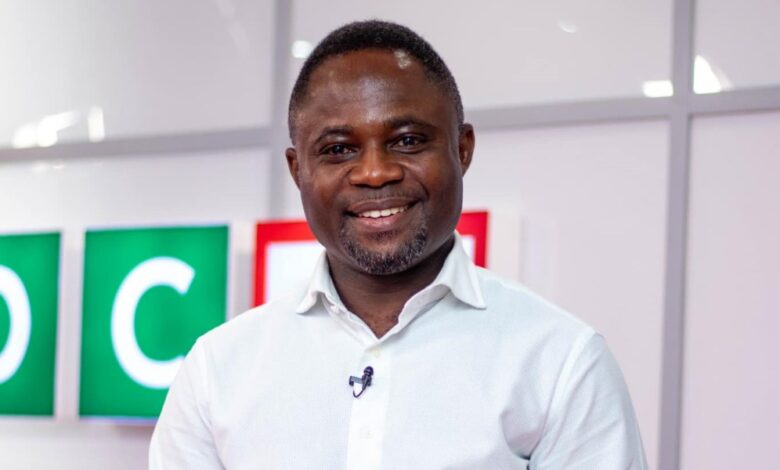Health Minister takes his turn on Government’s Accountability Series on July 18

Honourable Minister of Government Communications
Heads of Health Agencies and Partner Institutions
Friends from the Media
Distinguished Ladies and Gentlemen
Good morning.
I am honoured to join you today to share an update on the remarkable progress made in Ghana’s health sector during the first half of 2025.
Ghana’s health sector remains a critical pillar of national development.
It underpins healthy communities, drives economic productivity, and helps realise our national vision for a prosperous Ghana.
When we took office, we inherited a Ministry of Health burdened with a staggering debt of nearly 12.68 billion Ghana cedis; this included unpaid bills to service providers, arrears to donor partners, and outstanding payments to contractors.
Despite this, we have not wavered in our commitment to deliver. We also inherited the much-touted Agenda 111 programme, which,
despite an investment of $344 million, had not completed and operationalised a single hospital. Worse still, it left behind over billion Ghana cedis in arrears for us to settle.
But we are not here to dwell on excuses. We are here to deliver. Our party promised bold and clear commitments to improve the health
and well-being of all Ghanaians – and we are delivering on them. We promised to:
• Strengthen service delivery by expanding access to free, quality
primary healthcare that prioritises disease prevention
• Tackle non-communicable diseases through initiatives like the
Ghana Medical Trust Fund (MahamaCares).
We also pledged to enhance leadership and governance by:
• reforming health financing
• developing local pharmaceutical production, and
• Improving the management of our health institutions — steps we are actively implementing.
More importantly, we believe that compromising on the need for motivated and skilled health workers is not an option. Therefore,
we have promised and are implementing policies for their professional development.
Additionally, our investments in healthcare infrastructure, manufacturing, and traditional medical research are progressing well.
Ladies and gentlemen, by fulfilling these promises, we are building a healthier Ghana – one we are creating together, right now.
Our government, led by His Excellency President John Dramani Mahama, remains firmly dedicated to providing quality and equitable
healthcare for all in Ghana. The Ministry of Health, responsible for executing the Government’s health agenda, oversees 26 agencies
involved in health service delivery, regulation, training, and financing.
Today, I am pleased to share with you the highlights of our key achievements, aligned with our government’s health priorities, the
challenges we face, and our plans that reflect the manifesto promises and national development priorities for achieving the SDG and UHC
goals.
Health Financing
Let me start with health financing. One of our main commitments is to guarantee sustainable funding for the health sector.
Thanks to the visionary decision to uncap the National Health Insurance Levy, the NHIA’s revenue for 2025 has soared to an unprecedented 9.76 billion Ghana cedis compared to the previous capped budgetary allocation of 6.52 billion Ghana cedis in 2024 – a massive increase of 3.26 billion Ghana cedis.
This additional funding is a game-changer, enabling the NHIS to expand coverage, enhance benefits, and strengthen Ghana’s progress towards achieving universal health coverage. This is the government fulfilling its promise to prioritise the health of every citizen.
Furthermore, with the increased funding to the NHIS, we have increased allocations for claims payments from 56.2% in 2024 to 65% in 2025, and plan to increase to 75% by 2026. As the fund grows, we ensure that every cedi reaches frontline services, providing quality care to all Ghanaians.
Not only have we uncapped the levy, but we have also been committed to releasing funds swiftly. I am proud to announce that all NHIS claims arrears totalling GHS 603 million as of December 2024 have been fully settled. This milestone demonstrates our government’s steadfast dedication to timely payments and fulfilling our obligations to healthcare providers.
In the first half of 2025 alone, the NHIA disbursed over GHS 1.38 billion to providers, reflecting a system that is stronger, more responsive, and more reliable than ever before. This turnaround demonstrates that we are developing a health insurance scheme that benefits all Ghanaians.
Ladies and gentlemen, today, 15.67 million Ghanaians are enrolled in the NHIS – an increase of over 670,000 from last year. What this
means is that 670,000 more Ghanaians are now benefiting from health insurance coverage.
To address the declining funding of the health sector caused by the exit and budget cuts of development partners, following H.E. John Mahama’s directive, we also quickly prioritised funds to fill the gaps. Still on financing, we continue to collaborate with private partners to
invest in healthcare infrastructure through PPP arrangements.
Currently, we have identified a partner conducting a nationwide assessment that will underpin our retooling agenda for health facilities.
Health Workforce Our biggest asset in healthcare is our people — the dedicated nurses, doctors, allied health professionals, pharmacists, and all supporting staff who serve Ghana every day.
We recognise the challenge of over 70,000 qualified health workers currently awaiting employment, but I want to assure you that we are working tirelessly to clear this backlog. In the past six months alone, we have successfully finalised the employment process of over 10,000 nurses and midwives, with many more to come.
Ladies and gentlemen. I am proud to share that we have taken decisive steps to clear the salary arrears for 321 Pharmacist House Officers who completed training in 2024, with payments now being processed. While 1,621 qualified pharmacists await permanent employment, we are prioritising their recruitment as part of strengthening our health workforce.
This is just one example of our broader commitment to clearing the backlog across all health worker cadres, ensuring every qualified professional has the chance to serve and strengthen Ghana’s health system.
To complement government recruitment, we are exploring managed migration and private sector options. Regarding managed migration opportunities, over 13 countries have now expressed interest in recruiting Ghanaian health workers. We are formulating policies to ensure these benefits are fairly distributed to both our health system and our professionals.
Furthermore, we are also investing heavily in their professional development and welfare to ensure a motivated and skilled workforce.
In this regard, the government has implemented Conditions of Service agreements with our health unions.
Also, in recognition of the skill gaps identified by our Health Labour Market Analysis, we are revamping the curricula at our training
institutions to address population health needs, increasing intake for specialist nursing programmes, and transforming general nursing schools into specialised training centres.
We are indeed investing heavily in the next generation of health workers:
– Over the past six months, we have guided more than 40 nursing, midwifery, and allied health colleges through the accreditation process to offer degree programmes alongside their existing diploma courses – a significant step forward for quality education.
– To improve accessibility, we launched a new admissions portal for health training institutions that allows applicants to apply from the comfort of their homes.
Ladies and Gentlemen, this is another good news! I am pleased to announce that, just 24 hours ago, the nursing training allowance
for both the first and second quarters, amounting to 462.58 million Ghana cedis, was credited to the accounts of our student nurses.
This demonstrates that when we say we support our future health workers, we follow through. Moving forward, we will maintain this
momentum to ensure allowances are paid on schedule, because supporting our trainees today means building a stronger, healthier Ghana tomorrow.
Health Infrastructure and Equipment: Foundations of Quality Care Ladies and gentlemen, constructing health facilities and equipping
them is critical for delivering quality care.
We inherited several critical infrastructure projects, including the Treatment and Holding Centres at Koforidua, Goaso, and Asawinso; the Infectious Disease Training Centres at Pantang and Nkenkasu; and turnkey rehabilitation projects, such as Effia Nkwanta Hospital, La General Hospital, KATH Maternity, and the reconstruction of the Central Medical Stores.
In line with the government’s promise to continue ongoing health projects, four major COVID-19 response initiatives – including treatment centres and staff accommodations, funded by the government and the World Bank – have been completed across the country over the past six months.
For the Agenda 111 initiative, we will prioritise the completion of projects that are more than 80% complete. Our government’s resolve is
clear: to leave no community behind in the journey to excellent health infrastructure.
We have also continued to upgrade key facilities, including the Komfo Anokye Teaching Hospital Maternity and Children’s Block. Hospitals such as Korle Bu, Cape Coast Teaching Hospitals, and LEKMA Hospital have received essential equipment, including ventilators and oxygen plants. These are the tools we need to save lives every day.
We remain committed to closing infrastructure and equipment gaps through domestic investment and partnerships with the private sector.
However, there are still gaps. Many facilities need renovations, new equipment, and dependable maintenance systems. We commit to bridging these gaps through domestic investment and international partnerships, primarily via Public-Private Partnerships (PPPS).
Ladies and gentlemen, not withstanding these challenges, we remain resolute. As part of our firm commitment to fulfilling campaign promises and transforming healthcare infrastructure, particularly in underserved areas, the government has released funding to every district assembly to support the construction of at least two new CHPS compounds each year.
This investment brings quality health services closer to communities and shows our government’s dedication to building a stronger, healthier Ghana from the ground.
Improved Service Delivery
Across the country, within the public sector, we have six teaching hospitals, ten regional hospitals, and over 9,025 PHC facilities, including District Hospitals, Polyclinics, Health Centres, and CHPS compounds. There are also several thousands of private health facilities. Together, these form the network of facilities through which we provide healthcare to the people of Ghana.
• Ghana Medical Trust Fund
We promised to prioritise the response to non-communicable diseases (NCDs), which cause over 40% of our deaths, and we are on track with
that. The Ghana Medical Trust Fund (MahamaCares) is a bold and innovative response to the growing challenge of chronic diseases in Ghana. This includes our citizens with diabetes, hypertension, stroke, kidney failure and cancers.
With an annual budget of approximately GHS 3 billion, it will provide essential specialist care, such as chemotherapy services, that go beyond what the NHIS currently covers. Funding will be provided by the National Health Insurance Fund, government budget allocations, investments,
and generous grants and donations. MahamaCares demonstrates how Ghana is leading the way in health innovation, ensuring that no
Ghanaian fighting a chronic illness is left behind.
Ladies and gentlemen, I would like to take this opportunity to express our gratitude to all individuals and organisations that have donated
generously. I also encourage Ghanaians to continue donating to support our compatriots living with chronic diseases.
• Free Primary Health Care
The Free Primary Healthcare Initiative is making steady progress. We are engaging with relevant stakeholders to design, finalise, implement,
and monitor the programme. Looking ahead, this initiative has the potential to transform primary healthcare access in Ghana, ensuring
that quality services are delivered equitably and sustainably across all communities.
• Emergency Services
Ladies and gentlemen, as we all know, emergencies cannot wait – we must respond to them as they happen. It is for this reason that we
continue to prioritise emergency services. To strengthen emergency response at the community level, the National Ambulance Service
(NAS) is partnering with St John Ambulance to establish a pool of community first responders.
I want to mention that we have initiated procedures to repair ambulances that have broken down. In addition, we are also exploring
opportunities to expand the fleet.
• Expanding access to vaccines
The Government of Ghana has demonstrated a steadfast commitment to the health and well-being of our children. This year, we increased
the budget for vaccines by 46%. As of today, we have fully paid the country’s US$24.5 million to GAVI. This prompt payment will help ensure we avoid recurring shortages of critical vaccines, which can lead to outbreaks.
By August, we will receive hundreds of thousands of vaccine doses ready to reach every community across the nation. As we say, investing in our children’s health today is securing Ghana’s tomorrow.
We are not resting on our achievements. The government will continue to prioritise and invest in immunisation to protect every child and build
a healthier nation for generations to come.
Vaccine Manufacturing
Ladies and Gentlemen, the government has pledged and remains dedicated to making Ghana a centre for vaccine manufacturing. In this
regard, the National Vaccine Institute is collaborating with the regulatory authority and pharmaceutical industry stakeholders to bring
this plan to reality. I am happy to inform you that one of our private sector partners has obtained market authorisation from Ghana’s FDA to produce Snake Anti-Venom Serum on a commercial scale, marking the next step in our goal to shift Ghana from a consumer to a producer.
Challenges We’re Tackling
We have challenges, no doubt:
• Qualified health workers are waiting for jobs.
• Industrial actions that threaten services.
• Infrastructure gaps, especially in regional hospitals.
• Poor maintenance culture in our facilities and institutions
Ladies and gentlemen, as you can see, we are tackling these head-on, planning and investing prudently. Looking ahead, Ghana’s health sector is poised for a remarkable transformation.
We are fully committed to making free primary health care a reality for every Ghanaian, breaking down barriers to essential
services.
The MahamaCares initiative is no longer just a promise—it is a lifeline growing stronger every day. When fully operational, it will
support our people who are battling with chronic diseases in every part of our country.
Our health workforce will be empowered through expanded specialist training and meaningful incentives, ensuring our skilled professionals remain motivated and ready to serve. We are clearing the backlog of qualified health workers to fill critical gaps in our system and position ourselves in support of H.E. John Mahama’s 24-hour Economy Agenda.
At the same time, we will scale up our efforts to equip our hospitals and clinics with modern technology, enabling us to provide care that meets global standards. This will catalyse our promise to promote medical tourism.
Furthermore, we will continue to build partnerships and mobilise resources to strengthen the research and development, as well as the
regulatory capacities, needed for pharmaceutical and vaccine manufacturing.
Together, these actions are not just plans on paper; they are the foundation of a healthier, stronger Ghana today and for generations to come.
Ladies and Gentlemen, the progress we have made so far is a testament to the dedication of our health teams, partners, communities and ultimately, the government’s vision. Together, we will continue to deliver quality healthcare to every Ghanaian.
Thank you and may God bless Ghana





